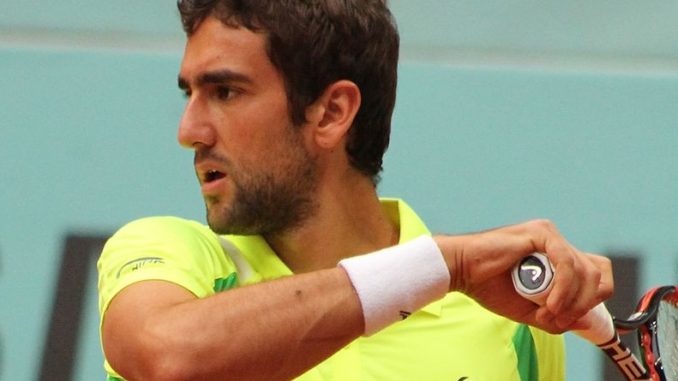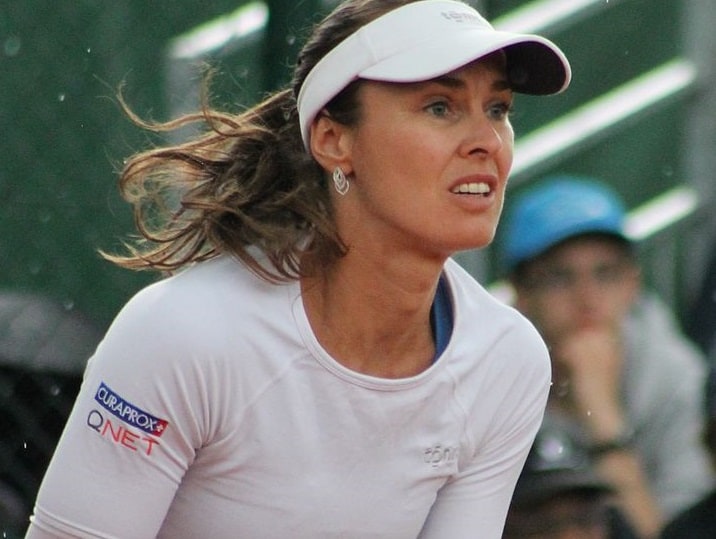
Whilst everybody would like to hope that tennis is a clean sport, it is no more immune from doping or the use of illegal drugs than any other activity in society. Here are seven tennis players who were caught – or admitted – to breaking the rules as far as doping is concerned.
Andre Agassi’s Autobiographical Revelations
American Andre Agassi is best known as a former world number one and eight-time Grand Slam winner, as well as being the first man in history to achieve a Career Grand Slam (all four majors and an Olympic gold medal).
Now married to another former champion Steffi Graf, and renowned for his good works and the millions that he raises for charity, Agassi waited until he retired before he raised his murky past in his autobiography “Open”.
In that book he disclosed that, back in 1997, he tested positive for the banned drug Crystal Methamphetamine. Agassi claimed that he was introduced to the drug by an assistant, at a time when his form was suffering, and his marriage to the actress Brooke Shields, was falling apart.
He subsequently failed a drugs test which, at that time, would have earned him a three-month ban. However, he avoided suspension by claiming that he had ingested the substance when his drink was spiked, an explanation the ATP accepted.
When the revelations appeared, WADA (The World Anti-Doping Agency) asked the ATP to review the case. However, as it occurred before WADA had been formed, and was outside their statute of limitations anyway, there was nothing they could do.
Also Read:
Richard Gasquet Seals it with a Kiss
Richard Gasquet is a former top-ten player who, in a long professional career, has won 15 ATP titles. Back in 2009, though, the Frenchman faced a long lay-off from the sport after testing positive for cocaine at the Sony Ericsson Open in Florida.
He was given a 12-month provisional ban but, in July of that year, the suspension was lifted when an ITF (International Tennis Federation) appeals panel accepted Gasquet’s claim that the drug got into his system because he kissed a woman in a nightclub who had taken it. They also pointed out that the traces of cocaine found were so minute that they did not suggest evidence of a regular drug user.
The ITF and WADA took the case to the Court of Arbitration for Sport (CAS), demanding a two-year ban, but they lost.
Marin Cilic Guilty of Carelessness?
The winner of the US Open in 2014, a year earlier Croatian Marin Cilic was found guilty of taking the banned substance Nikethamide when competing at the Munich Open. In August he was handed a back-dated, nine-month ban, despite his claims that the substance was contained in some glucose tablets which had been bought on his behalf by a member of his team at a local pharmacy.
Feeling that he had been treated like a criminal because of his doping ban, an aggrieved Cilic took his appeal to CAS, arguing that he had not been aware that the Coramine glucose tablets contained the prohibited substance.
In October of that year, CAS reduced his ban to four months, stating that he had been guilty of carelessness, not deliberate doping, and that the sanction was not proportionate to the degree of fault.
[the_ad id=”24055″]
Viktor Troicki in a Monte Carlo Bust
Before Novak Djokovic, Victor Troicki was the best male player to come out of Serbia. He won the Kremlin Cup in 2010, and, in 2011, reached a career high ranking of 12 in the world.
Two years later, though, he was handed an 18-month ban from the sport after failing to produce a blood sample at the Monte Carlo Masters in April, 2013. Troicki subsequently claimed that he had asked permission to avoid the test because he was feeling unwell at the time, but that explanation was rejected by the ITF.
Protesting his innocence, and refuting any suggestions that had ever been involved in doping, he appealed his ban to CAS, who reduced it to 12 months.
He resumed his career the following year, and went on to win the Sydney International in 2015 and 2016.
Martina Hingis’ Doping Ban Ends Singles Career
By the time that she was 21 years old, Martina Hingis had spent 209 weeks as the world number one, and had won seven singles Grand Slam titles. Injuries then took their toll, and she retired from the sport, only to make a successful comeback in 2005.
However, two years later, it was revealed that Hingis had failed a drugs test at Wimbledon, and had tested positive for Benzoyleogine, a cocaine metabolite. She protested her innocence, and claimed that she had inadvertently ingested it. Furthermore, it was claimed that the amounts detected in her test sample were so small, that many contemporary test programmes, such as that used by the US Military, would have failed to detect it.
Despite this, she was found guilty by the ITF, and banned from tennis for two years, effectively ending her singles career.
She later returned to the sport for a third time, and, turning her attention to doubles, enjoyed further success, winning Grand Slam titles in both women’s and mixed events.

Barbora Strycova’s Weight Loss Supplement
Although the Czech woman Strycova has won two senior singles events, it is as a doubles player that she has experienced her greatest success. She won the women’s double at Wimbledon in 2019, was a beaten finalist in Melbourne in January, and has won 29 other WTA titles.
However, one part of her career she will not look back on with fondness was the five month ban she served from the sport between October 2012, and February 2013 after testing positive at the Luxembourg Open for the banned stimulant Sibutramine. It was subsequently accepted by the ITF that she had accidentally ingested it whilst taking a weight loss supplement called Acai Berry Thin.
However, in imposing the ban, and in line with WADA guidelines, the ITF made it clear to the player that the onus lies with the athlete, and they are responsible for what gets into their system.
Maria Sharapova, a Political Conspiracy Alleged
Recently retired Maria Sharapova is one of only ten women, and the only Russian, to have won a Career Grand Slam. A former world number one, who enjoyed a sometimes bitter rivalry with Serena Williams during her career, Sharapova’s reputation was damaged in 2016 when she failed a drugs test at the Australian Open, testing positive for a drug called Meldonium, used to treat heart disease.
Sharapova claimed innocence, maintaining that she had been prescribed the drug for ten years by a doctor, and also, that she was unaware that, on the first of January of that year, it had been added to the banned list by WADA.
She was initially handed a two-year ban, which led to some commentators in Russia to allege a political conspiracy against her on behalf of the American government. However, this was later reduced on appeal to 15 months. The ITF maintained that it was the responsibility of Sharapova’s team to keep up to date with what was on WADA’s proscribed list, but there was no significant fault on her part.
Be the first to comment